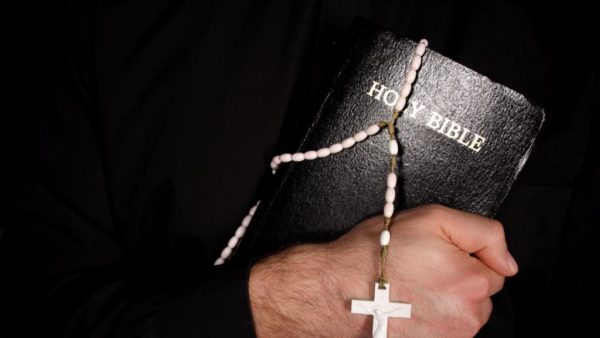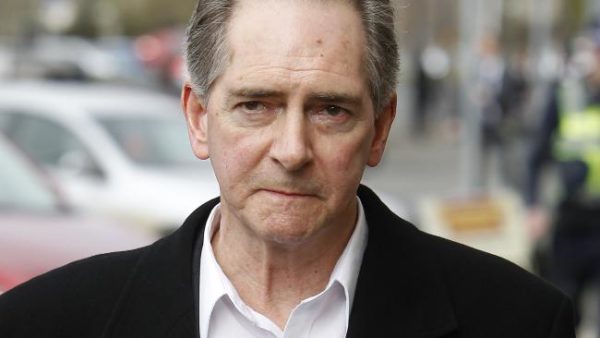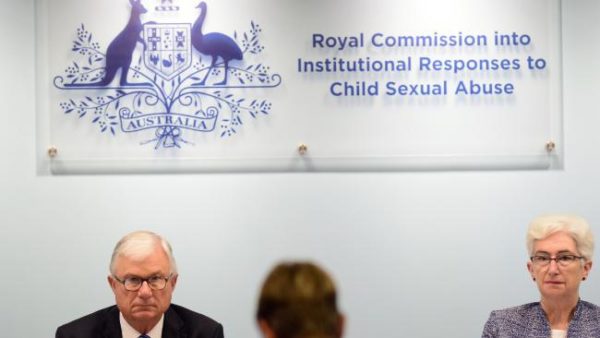Child abuse Royal Commission releases criminal justice report with 85 recommendations
August 14, 2017 · By SHANNON DEERY, Herald Sun for www.heraldsun.com.au

Priests would be charged for failing to report confessions of child sexual abuse in a range of sweeping recommendations of the child abuse royal commission.
PRIESTS would be charged for failing to report confessions of child sexual abuse in a range of sweeping recommendations issued by the child abuse Royal Commission.
The recommendations is one of 85 in a criminal justice report published today by the Royal Commission into Institutional Responses to Child Sexual Abuse.
It says the recommendations are aimed at reforming the Australian criminal justice system in order to provide a fairer response to victims of institutional abuse.
Among the recommendations the commission has called for:
A REFORM of sentencing practices in historical sex cases,
CHANGES to the way tendency evidence can be used in joint trials,
NEW legislation broadening grooming offences and,
LEGISLATION criminalising failure to protect children from abuse within an institution.
The recommendation to charge clergy who fail to report child sexual abuse disclosed during confession is expected to face fierce opposition.
The Catholic Church has repeatedly stressed its opposition to forced reporting because of the inviolability of the confessional seal.
Giving evidence to the commission during the Ballarat hearings, bishop Paul Bird said he would not report crimes confessed to him, including sexual abuse.
Bishop Bird said instead he would tell the confessor to report themselves to civil authorities.

Ballarat bishop Paul Bird, during a royal commission hearing, said he would not disclose to authorities confessions of child sex abuse.
The Royal Commission said it had heard evidence of a number of instances where disclosures of child sexual abuse were made in religious confession, by both victims and perpetrators.
“We are satisfied that confession is a forum where Catholic children have disclosed their sexual abuse and where clergy have disclosed their abusive behaviour in order to deal with their own guilt,” it said in its report.
There is significant risk that perpetrators may continue with their offending if they are not reported to police, the Royal Commission said.
The commission recommended clergy be granted no privilege or exemption from failure to report offences disclosed during confession.
As part of its recommendations the commission also wants the current law changed to facilitate more admissibility and cross-admissibility of tendency and coincidence evidence and more joint trials in child abuse matters.
Currently in Victoria people of accused of multiple sexual offences against multiple complainants face separate trials.
Juries in those trials are rarely told about the other allegations they are facing or have faced.
But the Royal Commission found “there have been unjust outcomes in the form of unwarranted acquittals because of the exclusion of tendency or coincidence evidence.”
“Research and data examined by the Royal Commission found that concerns that tendency and coincidence evidence carries a high risk of unfair prejudice to accused are misplaced,” it said.
Royal Commission CEO Philip Reed said the criminal justice system was often seen as not being effective in responding to child sexual abuse cases and conviction rates are lower compared to other crimes.
“Child sexual abuse cases are often ‘word against word’ cases with no eyewitnesses or medical or scientific evidence. Complainants often take years or decades to disclose their abuse,” Mr Reed said.
“Although we have focused on child sexual abuse in institutions, these 85 recommendations are likely to improve responses to child sexual abuse in all contexts.”

Justice Peter McClellan and Justice Jennifer Coate during a hearing at the Royal Commission into Institutional Responses to Child Sexual Abuse. Picture: Jeremy Piper
Mr Reed said the recommendations have been informed by the Royal Commission’s public hearings, private sessions, a consultation paper, research and roundtables.
Maurice Blackburn Abuse Law Principal Michelle James said institutions had turned a blind eye to abuse for too long.
“For decades institutions have chosen not to act on abuse allegations, and the consequences of this inaction for abuse survivors has been devastating,” Ms James said.
“The Royal Commission has rightly identified that the continued failure of institutions to report allegations of abuse or to protect children is unacceptable, and that such failures have let down abuse survivors.
“It is only right therefore that a failure to report concerns of abuse is met with a criminal offence — we must send a strong message that not only are such failures completely out of step with community expectations, they are also out of step with the law, with serious consequences for not acting on abuse allegations or concerns.
“Religious institutions in particular have repeatedly been found to have put their reputations ahead of doing the right thing in acting on abuse, and we urge all states and territories to support the Royal Commission’s recommendation to ensure that failure to report as an offence is also extended to religious confessionals,” she said.






